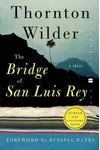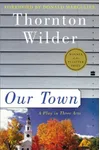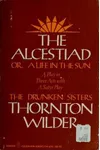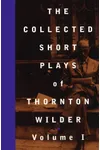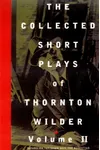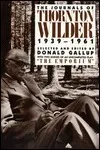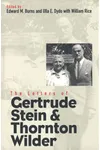Picture an American storyteller who spun tales of love, loss, and life’s quiet beauty—meet Thornton Wilder! Born in 1897, this Pulitzer Prize-winning playwright and novelist captured the human spirit in works like Our Town and The Bridge of San Luis Rey. With a global perspective and a knack for finding meaning in the everyday, Wilder’s stories still resonate, inviting us to pause and reflect on what truly matters.
From his early days as a curious scholar to his later years as a literary giant, Wilder’s life was as vibrant as his prose. His innovative narratives broke boundaries, blending timeless themes with a touch of wit. Ready to dive into the world of a writer who made the ordinary extraordinary? Let’s explore Thornton Wilder’s journey!
The Making of Thornton Wilder
Thornton Niven Wilder was born on April 17, 1897, in Madison, Wisconsin, to a family that valued education and adventure. His father, a newspaper editor and diplomat, took the family to China, where young Thornton soaked up diverse cultures. Educated at Yale and Princeton, Wilder taught French and literature, sharpening his keen eye for human nature. His global travels and academic life fueled his writing, which began with his first novel, The Cabala, in 1926, a meditative tale of Italian aristocracy.
Thornton Wilder’s Unforgettable Stories
Wilder’s genius shone in his ability to weave profound truths into simple settings. His 1927 novel, The Bridge of San Luis Rey, explores fate and love through the collapse of a Peruvian bridge, earning him his first Pulitzer Prize. Our Town (1938), a minimalist play about life in a small New England town, redefined theater with its bare stage and universal themes, snagging another Pulitzer. The Skin of Our Teeth (1942), a whimsical allegory of human resilience, blended comedy and existential musings, cementing Wilder’s innovative style.
His writing danced between playful and poignant, often using sparse settings to highlight emotional depth. Wilder’s themes—mortality, community, and the search for meaning—resonated across cultures, reflecting his worldly perspective. His novel The Eighth Day (1967) tackled legacy and justice, proving his storytelling evolved with age. Each work invited readers to find beauty in life’s fleeting moments.
Why Thornton Wilder Matters
Thornton Wilder’s legacy lies in his ability to make the universal feel personal. His works reshaped American theater, inspiring playwrights like Edward Albee and influencing minimalist staging. Our Town remains a staple in schools and theaters, sparking conversations about life’s fragility. Wilder’s storytelling, rooted in empathy and wisdom, continues to captivate readers and audiences, reminding us to cherish the everyday.
His global outlook and literary daring earned him three Pulitzer Prizes and a National Book Award, but his true impact is in the hearts he touched. Wilder’s stories transcend time, urging us to find meaning in our own lives.
About Thornton Wilder
- Born: April 17, 1897, in Madison, Wisconsin
- Key Works: The Bridge of San Luis Rey, Our Town, The Skin of Our Teeth
- Awards: Three Pulitzer Prizes, National Book Award
- Died: December 7, 1975, in Hamden, Connecticut
Snag a copy of Our Town or The Bridge of San Luis Rey and dive into Thornton Wilder’s timeless world of heartfelt storytelling!

